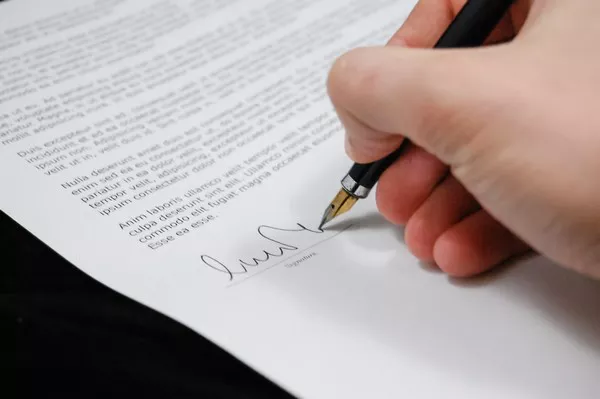Letting go of an ex you still love is one of the most emotionally challenging experiences a person can face. When a relationship ends, particularly if you’re still emotionally attached, it can feel as though you’ve lost a part of yourself. You may be caught in a cycle of longing, regret, and an overwhelming desire to reconnect. From a psychological perspective, moving on from an ex you still love involves not only managing the emotional pain but also actively engaging in self-care and emotional healing. This process can take time, but with the right strategies, you can regain your emotional well-being and eventually open yourself up to new experiences and relationships.
This article explores the psychological aspects of letting go of someone you still have feelings for, the emotional obstacles that arise, and actionable steps to facilitate the healing process.
1. The Psychological Struggle of Letting Go
The emotional and psychological struggle of letting go of an ex stems from a combination of attachment, emotional investment, and identity. When you love someone, your brain forms deep emotional bonds, releasing oxytocin and dopamine, the “feel-good” hormones associated with bonding and pleasure. This biological and emotional wiring creates a sense of attachment that can make the idea of breaking up feel unnatural, even painful.
According to attachment theory, developed by psychologist John Bowlby, people form strong emotional connections in their relationships, often carrying an implicit expectation that these connections will last. When a relationship ends, especially if it wasn’t your choice or if it ended on unresolved terms, it can feel like a traumatic experience—akin to the emotional withdrawal one might experience when addicted to a substance. The process of detaching emotionally from someone you love often involves withdrawal symptoms like sadness, anxiety, and a deep sense of longing for the person.
Another reason why letting go of your ex is so difficult is that it challenges your sense of identity. Many people invest a great deal of their self-concept and future aspirations in their romantic relationships. When that relationship ends, it can cause feelings of self-doubt, loss of purpose, and an identity crisis. You might question who you are without your ex or fear that you’ll never find someone else who makes you feel the way they did.
2. The Stages of Grief After a Breakup
Psychologist Elisabeth Kübler-Ross’s five stages of grief—denial, anger, bargaining, depression, and acceptance—are not only applicable to death but also to the emotional aftermath of a breakup. These stages provide a framework for understanding the process of emotional healing when you’re letting go of someone you still love. While these stages don’t necessarily occur in a linear fashion, and people can cycle through them in different orders, they help to normalize the emotional chaos that typically accompanies the end of a relationship.
Denial: Initially, you may refuse to accept the breakup. You might rationalize that it’s temporary or that the relationship will eventually come back together. This stage can involve holding onto hope and continuing to keep in touch with your ex, preventing you from fully processing the end of the relationship.
Anger: After denial, many people feel anger or resentment toward their ex. This could be directed at the person for ending the relationship, or it may be an internalized anger at yourself for not being able to fix things. You may feel hurt, betrayed, or abandoned, and these emotions can cloud your judgment and prolong your ability to move forward.
Bargaining: This stage involves trying to negotiate or manipulate the situation. You might think that if you just change certain things about yourself or the relationship, you could get back together. This stage often involves intrusive thoughts and obsessive rumination.
Depression: As you begin to accept the reality of the breakup, sadness often follows. This is a time of deep emotional pain, loneliness, and grief. You may mourn the loss of the relationship, as well as the loss of dreams or plans you had for the future. This stage is important for emotional healing, though it can feel overwhelming at times.
Acceptance: Eventually, you begin to accept that the relationship is over and that your life must move forward. You understand that, while the relationship was important, it’s no longer serving your emotional or personal growth. Acceptance doesn’t mean forgetting your ex or no longer loving them; rather, it means recognizing that your life is ready to move in a new direction.
3. How to Let Go of Someone You Love
Letting go of an ex you still love requires intentional effort. While time and patience are necessary components of healing, there are specific psychological strategies you can use to aid in the process.
Acknowledge and Process Your Emotions
The first step in letting go is acknowledging your feelings. It’s natural to feel sad, angry, or conflicted after a breakup, especially if you’re still in love with your ex. Suppressing or denying your emotions can prolong your pain and prevent you from moving forward. Instead of trying to “just get over it,” allow yourself to experience your emotions fully. Give yourself permission to grieve the loss of the relationship, but do so in a healthy way—whether through journaling, talking to friends, or seeking therapy.
In the context of emotional healing, self-compassion is crucial. Understand that it’s okay to feel hurt or lost, and be gentle with yourself during this time. Recognize that emotional healing takes time and that you are not weak for feeling the way you do.
Cut Off Contact
One of the most important psychological steps in moving on from an ex is to establish emotional and physical distance. Continued contact can keep the emotional attachment alive, making it harder for you to heal. This can be especially difficult if you and your ex are friends on social media or have mutual social circles. It’s important to set clear boundaries and, if necessary, take a break from digital communication. This may include unfollowing or muting them on social media or asking mutual friends to respect your need for space.
Distance allows you to detach emotionally, creating the space necessary for new thoughts and feelings to emerge. It may be tempting to “check in” with your ex to see how they’re doing, but this often prolongs the process of healing.
Challenge Idealization of the Relationship
When we’re still in love with someone, it’s easy to idealize the relationship and overlook the reasons it ended. We might focus on the good moments, forgetting the problems or red flags that led to the breakup. Cognitive dissonance (the discomfort caused by holding two conflicting thoughts) can make it difficult to reconcile these conflicting emotions.
To let go of your ex, it’s important to challenge these idealizations by reminding yourself of the relationship’s flaws. Reflect on why things didn’t work out and the reasons you were unhappy or unfulfilled in the relationship. Write down these thoughts if necessary, as it can help you maintain perspective and prevent you from romanticizing the past.
Focus on Your Personal Growth
A breakup offers a unique opportunity for self-reflection and personal growth. After a breakup, it’s easy to get caught up in thoughts of your ex, but it’s equally important to redirect some of your energy into rediscovering yourself. Reconnect with your passions, pursue hobbies that bring you joy, and focus on areas of your life that you may have neglected during the relationship.
Self-care is essential during this time. Engage in activities that nourish your mind and body—whether through exercise, meditation, creative pursuits, or socializing with supportive friends. The goal is to create a life that feels fulfilling on your own, separate from the relationship.
Practice Forgiveness and Let Go of Resentment
Holding onto resentment or anger toward your ex can be emotionally exhausting and can delay the healing process. While it’s normal to feel hurt or betrayed, it’s important to practice forgiveness. Forgiveness doesn’t mean excusing their behavior, but it allows you to release the negative emotions tied to the relationship and move forward.
Forgiveness is a gift to yourself—it frees you from the emotional burden of holding on to past pain and enables you to find peace within yourself.
Build New Connections
Over time, you’ll want to open yourself up to new relationships, both platonic and romantic. Engaging with others allows you to shift your emotional focus and rebuild your social support network. While you may not be ready to start a new romantic relationship immediately, strengthening friendships and expanding your social circle can provide comfort and distraction, as well as increase your sense of self-worth.
Conclusion
Letting go of an ex you still love is undeniably painful, but it’s also a crucial step toward emotional freedom and growth. The psychological process of healing involves not just letting go of the person, but also of the expectations and dreams associated with the relationship. By embracing your emotions, setting boundaries, reflecting on the past, and focusing on your personal well-being, you can navigate the painful transition and eventually find peace.
Remember, healing takes time, and there’s no “right” timeline for letting go. Be patient with yourself as you move through the process, and trust that with time, effort, and support, you will find the emotional strength to move on and create a fulfilling future beyond the relationship.






















